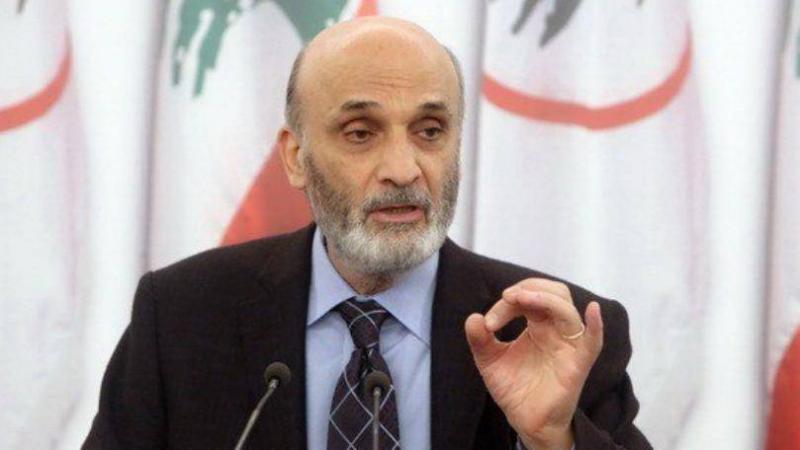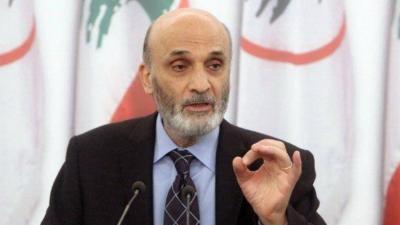The presidential electoral scene in Lebanon is heading towards further complexity, with varying estimates about whether the elections will take place on time or not, given the rapidly evolving internal and external developments. From the collapse of successive sectors to strikes in the public sector and banks, with their catastrophic repercussions, to the widening disputes among political parties, along with the dramatic developments in Gaza and the Iranian escalation leading to the Vienna table for resuming nuclear negotiations, a series of factors impose themselves on the presidential scene, either directly or indirectly. Samir Jaja, the head of the Lebanese Forces party, discusses these issues in an interview with "Al-Markaziah."
He believes that the series of collapses, starting with symbolic ones like the silos at the port and extending to the more severe impact of the banking strike, must push towards holding the elections on time. However, the most important concern is the centrality of electing a president with a specific vision and agenda—not a "mediator" or someone from the March 8 Alliance, which poses a significant danger. He states: it is not merely a disagreement between two factions that can be resolved with a centrist president; in such a difficult and perilous phase for Lebanon, electing a president of this kind will only contribute to dragging the country along with conflicting interests, rather than seeking a mutual consensual candidate from within the opposition itself, certainly not one derived from two contrasting projects.
What some within and outside the country propose in terms of Lebanese agreement on a president is the easiest solution, but also the worst. We want a president who will take the country out of its current state, contrary to their approach, which adopts the theory of a president who maintains civil peace. What peace will remain if the collapse continues unabated? They have tested governments post-port explosion; what did they achieve other than further rolling towards the abyss?
Jaja adds: If we find that it is necessary to form an official delegation to tour abroad explaining this viewpoint, we will do so. Currently, through diplomatic channels, we are promoting the idea of an 'emergency' president, not a centrist one, or in other words, "no one". As for within the opposition, specifically among party members, independents, and change forces, communication is making notable progress, discussions are delving deeper, and we are making every effort to reach an agreement on a candidate acceptable to all who possesses the minimum of sovereign qualifications and the utmost in good governance and political management. We do not claim that finding this character is easy, but it certainly exists, and we will agree within the opposition that it should not be divisive, neither within the opposing team nor among other factions in the country.
Are specific names being discussed for promotion? Jaja confirms that discussions have not yet reached names but are diving into profiles. Regarding the presidential elections and the demarcation file, Jaja sees no connection, and Iran's involvement in this issue is unrelated to the presidency. Any action at this level, especially through field escalation, is linked to the potential explosion of the entire region, not just Lebanese elections. In any case, today's focus is on the developments in Gaza and the direction they will take—either a limited operation in time and space or a spark for a widespread explosion, God forbid. Next week, the picture is bound to clarify from Vienna to Gaza. As for the Iranian-Saudi negotiations, Jaja does not rely on them, as the positions are too far apart to be reconciled.
Regarding the border demarcation and developments in this file, Jaja expresses his belief that, based on the available information, either there will be an agreement next September or there won’t be one at all. The current phase witnesses the clearest proposals, either to be accepted or rejected, with no room for ambiguity between them.




